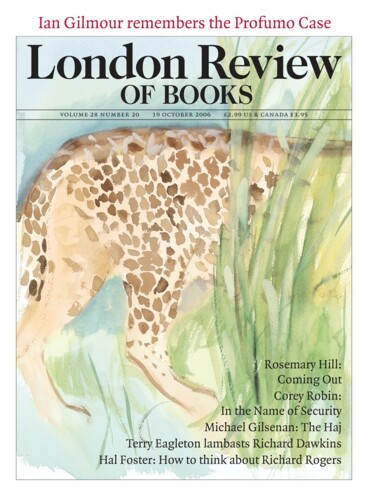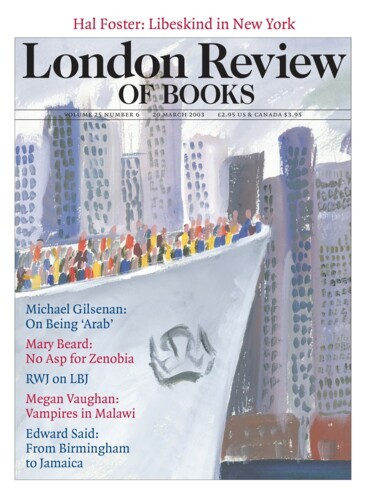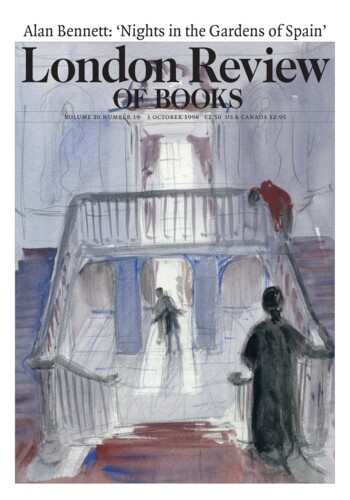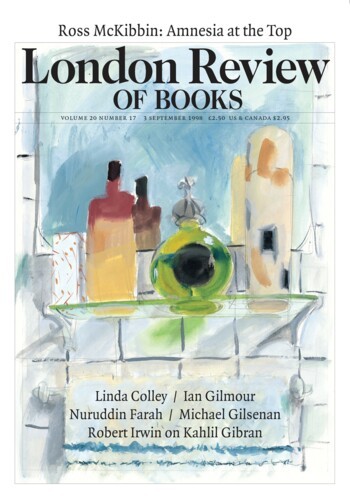Michael Gilsenan
Michael Gilsenan is professor of Anthropology and Middle Eastern Studies at New York University. His books include Lords of the Lebanese Marches.
And you, what are you doing here? The Haj
Michael Gilsenan, 19 October 2006
Pilgrims must be organised for the pilgrimage according to all the appropriate state classifications of residence and place of origin, just as later in Saudi Arabia they will live in areas arranged by nationality. And pilgrims should pay a little baraka along the way. If they do, then they have no registration problems and can fulfil the conditions of the Royal Commission on Pilgrimage and Umra (shorter visits to Mecca that Muslims can make at any time of year). If they do not, and Hammoudi again does not grasp this early enough to save himself a lot of trouble and many, many days of effort, then, naturally, nothing happens. . . This is all part of learning what it is to go on a modern pilgrimage. You have to learn about bureaucracy and corruption, to discover what it is to be ruled by those who guard the ways to salvation, to know how to wait, to submit: ‘The point was to await the awaiting.’
Out of the Hadhramaut: Being ‘Arab’
Michael Gilsenan, 20 March 2003
“On one occasion a proud Indonesian aunt took me through the ‘eleven bloods’ of her shyly patient ten-year-old nephew, each blood indicated quite clearly in her account by a bodily feature, skin colour, hair texture, eye shape, bone structure and so on. Who does and does not ‘look Arab’ is a source of much conversation, often highly amused though occasionally charged.”
Diary: in Yemen
Michael Gilsenan, 1 October 1998
A late summer’s night in Sanaa, the capital of Yemen. The rain is belting down, lightning flashes rip across the hills round the city, thunder rumbles, but the storm seems suspended over the open L-shaped courtyard of this adobe house. This is the style of the buildings in what was once the Jewish quarter: in through the front door; up two short flights of stairs at right-angles and you’re in the courtyard with the main reception room and five or six other small rooms off it, as well as endless storage spaces and passageways to other houses; up another short flight there is a top room. Normally, I take a quiet pleasure in the play of the different volumes of space, the filtered light of the alabaster windows, the lines of the whitewashed, uneven walls with their shifting landscapes played on by the evening light, and the streaks of dust that texture their surfaces. But not tonight.
Manager of Stories: V. S. Naipaul
Michael Gilsenan, 3 September 1998
When, suddenly, a voice intrudes with a direct challenge to a writer in his own text, the reader is put on special alert. Think of the charged encounter in Seamus Heaney’s ‘The Flight Path’. The grim-faced stranger on the train, ‘last met in a dream’, hurls‘
Pieces about Michael Gilsenan in the LRB
Politics and the Prophet
Malise Ruthven, 1 August 1996
For too long Islamic studies have existed in an academic ghetto which reinforced the essentialist view shared by the Islamologues, that Islam was somehow ‘different’ from the West. A...
Read anywhere with the London Review of Books app, available now from the App Store for Apple devices, Google Play for Android devices and Amazon for your Kindle Fire.
Sign up to our newsletter
For highlights from the latest issue, our archive and the blog, as well as news, events and exclusive promotions.




